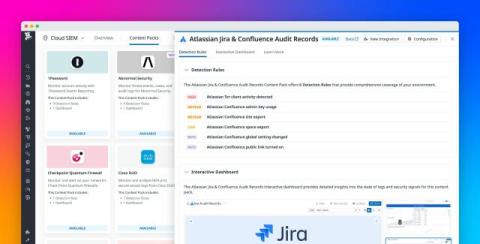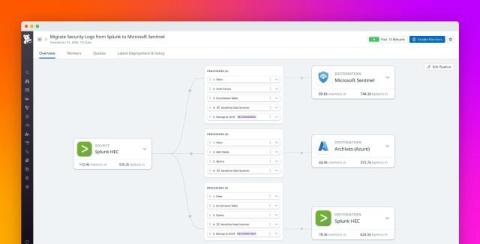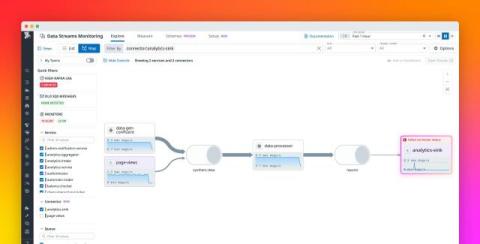Monitor your Atlassian audit records and event logs with Datadog Cloud SIEM
Collaboration platforms like Atlassian Jira and Atlassian Confluence contain sensitive company and employee data, making them critical targets for cyberattacks. Teams use Jira to track and manage projects, and rely on Confluence as an internal knowledgebase for documentation, company policy guides, team wikis, and more. Atlassian organizations, which provide a centralized place for admins to manage their Atlassian products and users, are also prime targets.










